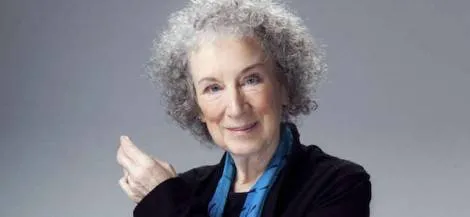
When Your Favorite Author Becomes Your Voice of Reason
This year at the Jaipur Lit Fest in January, I saw Margaret Atwood for just enough time to gush about it for the rest of my life. She did not look up at me, but as she signed my book, she spoke to her publisher about signing the books of every reader in the queue at that time. This made me respect and love the 76-year old author even more. Atwood has been an inspiration and there she was – right in front of me; if I had the courage to, I would quote her words back to her – “I would like to be the air that inhabits you for a moment only. I would like to be that unnoticed & that necessary.”
I found Margaret Atwood when I was turning to feminism for comfort. In between the vagaries of law school, I found The Handmaid’s Tale and devoured it like dark chocolate. I felt both empowered and powerless as I bore witness to Offred’s journey as a Handmaid in the Republic of Gilead. It made me uncomfortable and yet I couldn’t put it down – there was something magical tucked in between the pages of Offred’s life and her intriguing friendship with the Commander; I saw real life come alive as I realised that an entire society has been built based on the good woman/bad woman dichotomy. My mind ran amok – towards the end of the book, I felt that Atwood had turned into more than just an writer. She had become a friend…
… and I could with some friends. I wasn’t the know-it-all geek in law school, but neither did I fit in with the girls who loved to dress up and go partying. I was the horrid oddball who could do with a feminist friend at her most vulnerable age. Ironically, this is the time I began reading Cat’s Eye and was introduced to Elaine Risley and her tryst with childhood politics and a girl named Cordelia who made her miserable. Elaine often goes back to the past to recollect anecdotes and the reader witnesses her dual life – a successful artist but also a victim of bullying who has immensely haunting memories. It seemed that Atwood had, through this book, charted my own life – I remembered all the Cordelias that bullied me and listed their names down in a process to heal myself. Atwood had done the impossible; she helped me confront some difficult choices I had made – she had, in essence, taught me to accept my mistakes and forgive myself.
Then, there was The Edible Woman – this is Atwood’s first book. I’ve read this many times, and keep going back to this for comfort. I am twenty-something and within the context of Indian society, my biological clock demands that I get married as soon as possible! Like Marian, sometimes I wonder whether I can stomach marriage after all. Atwood, then, becomes a psychotherapist – in my head, I tell her my fears and doubts and she speaks to me in whispers, asking me to keep calm and telling me that things will get better. “What else can I do? Once you’ve gone this far you aren’t fit for anything else. Something happens to your mind. You’re overqualified, overspecialized, and everybody knows it.”
Over the years, Margaret Atwood has become more than my favourite author. She has become the voice of reason in my life decisions – a friend, philosopher and guide. She and I have forged a different kind of relationships through her books. She has changed my life in a way that no other friend has.
When I saw her briefly at the Lit Fest, I wanted to tell her all this and more. But I couldn’t. Between a five hundred people waiting to get their books signed, I took a picture of her and left, clutching Eating Fire tightly. This was a book that made me fall in love with her poetry and in her poetry, I had found poetry in my real-life love. There was no other book that I’d want her to sign more.